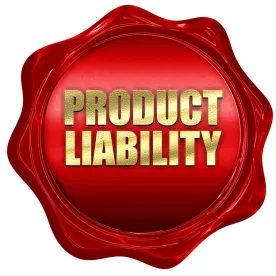In products liability litigation, the question of whether a product was defectively designed because the manufacturer decided to make certain safety equipment “optional” instead of “standard” is an issue that arises often in cases involving heavy equipment and machinery or commercial vehicles.
A plaintiff that is injured while using a product that was not fitted with the optional safety equipment will argue that the manufacturer, which is more knowledgeable about the potential risks posed to a user of the product, should not have left the decision-making process to the purchaser, and instead should have made the safety feature standard on all of its models of the subject product.
In response to this argument, the New York Court of Appeals carved out an exclusion for design defect liability on the part of a manufacturer that makes certain safety devices optional in the case of Scarangella v. Thomas Built Buses, Inc., 717 N.E.2d 679 (NY 1999). There, the buyer of the product was a bus company and the optional safety feature in question was a back-up alarm that could be equipped on the bus, if the purchaser so desired.
The Scarangella court set forth three factors that needed to be satisfied in order to invoke the exclusion from design defect liability on the part of the manufacturer for offering a safety feature on a product as “optional” rather than “standard” equipment:
- The buyer is knowledgeable regarding the product and is aware that the safety feature is available
- There exist normal circumstances of use in which the product is not unreasonably dangerous without the optional feature
- The buyer is in a position to balance the risks and benefits of not having the safety feature for the buyer’s specific uses.
Background
In Fasolas v. Bobcat of N.Y., Inc., 2019 N.Y. LEXIS 1357 (NY May 9, 2019), the Court of Appeals confronted the issue of whether the Scarangella exclusion is inapplicable where “the buyer” is not the employer of the end users as was the case in Scarangella, but rather a rental yard that rents the equipment to third-party end users in the general public.
The product at issue in Fasolas was a skid steer loader with a bucket attachment that plaintiff’s decedent rented from the co-defendant rental yard. Decedent tried to use the equipment to knock down a nine-foot tree, but the tree entered the open operator’s cab and crushed him. The manufacturer of the skid steer loader offered as an option a “special applications kit” designed to prevent objects from intruding into the cab; the kit consists of top and rear windows and a half-inch thick Lexan™ plastic door, but it was not recommended for use with the bucket attachment, which was not designed to knock down trees. The loader was a multipurpose machine that could accommodate up to 150 different attachments. Some of those attachments created the potential for flying debris to enter the cab, and for those applications, the special applications kit was a standard feature.
Plaintiff’s expert conceded at trial that the loader without the special applications kit was not defective for all uses. If, however, the unit were sold into the rental market, it was defective in design in his opinion, unless the special applications kit was made standard equipment because, in his view, rental customers were potentially untrained users of the product.
At trial, the Judge refused the manufacturer’s request for a Scarangella instruction to the jury. In addition, the Judge modified the standard New York Pattern Jury Instruction on design defect to include various references to “the rental market.” Thereafter, the jury found the manufacturer liable under the plaintiff’s design defect theory, and the manufacturer appealed.
Appellate Decision
The Appellate Division affirmed the trial court’s decision to refuse the Scarangellainstruction. The Appellate Division distinguished the Scarangella decision on the ground that “the buyer” in Fasolas was a rental yard, as opposed to the buyer in Scarangella, which was an employer. The Appellate Division reasoned that the third Scarangella factor could not be satisfied when the buyer of the product is a rental yard, holding that the rental yard was not in a position to balance the risks and benefits of the optional safety feature on behalf of its customers. The court placed emphasis on the fact that the employer-buyer had control over the product’s use and was motivated to protect the safety of its employees, which was ostensibly not the case for the rental yard−buyer. The court noted that the rental yard was not “at risk of personal harm” and so did not have the proper incentive to fairly balance the risks and benefits on behalf of third-party end users. See our blog of June 27, 2017, that was critical of the Appellate Division decision.
The Court of Appeals reversed and ordered a new trial on the ground that there is no “rental market” exception to the Scarangella exclusion, such that the requested Scarangella jury instruction should have been given. [The Court also reversed on the separate ground that the modified jury instructions, which made repeated references to the “rental market,” improperly lent the trial court’s imprimatur to the theory espoused by plaintiff’s expert.]
The Court of Appeals explained that the trial court and the Appellate Division had misinterpreted the third Scarangella factor:
[T]he contemplated “use” of the product was not “rental” or “placement in the rental market” … that is merely the process by which the product came into the hands of the end user. The preoccupation with this process deviates from our analysis in Scarangella by shifting the focus away from the purchaser’s knowledge of the product and ability to make a reasoned judgment concerning the utility of the safety feature and toward the nature of the marketplace through which the product passed.
The Court of Appeals went on to take issue with the Appellate Division’s conclusion that the rental yard was not as qualified as an employer to balance the risks and benefits of an optional safety feature for its customers.
On the issue of control, the Court of Appeals acknowledged that whether the buyer exercises control over the product’s use in its capacity as an employer or otherwise is relevant, but not dispositive. It noted that the rental yard could exercise control and minimize risk by carefully choosing to whom and for what uses it rents its equipment. In regard to the incentive to fairly balance the risks and benefits, the Court of Appeals, in parting ways with the Appellate Division, reasoned that even rental yards are motivated to keep their customers safe per sein addition to limiting their own tort liability. The Court of Appeals also noted that it is common for the purchasers of equipment to make safety choices for the end user and there is no “risk of personal harm” requirement in Scarangella.
The Fasolas case focuses on the third factor in the three-factor Scarangella test. The lesson of Fasolas is that where the buyer can “fairly weigh the risks and benefits of the optional safety feature on the part of end users,” the third Scarangella factor can be satisfied, regardless of whether that buyer is an employer, a rental yard or some other kind of entity. Especially when it comes to multipurpose industrial products, Fasolas is a reaffirmation of the long-held principle that the manufacturer is not always in the best position to know how the end user is using the product and thus the appropriateness of certain safety features for those particular uses. The employer in Scarangella, the rental yard in Fasolas and other similarly situated knowledgeable buyers function as quasi “learned intermediaries” who perform the risk-benefit analysis regarding the optional safety features on behalf of their employees, customers and other end users.



 />i
/>i
